- This event has passed.
Miranda v. Arizona – A 50th Anniversary Celebration
Wednesday, May 25, 2016
3:00 pm - 4:45 pm
Free
Immediately following the District Court Pro Bono Award program
1.5 Illinois MCLE
This program commemorates the 50th anniversary of the Supreme Court’s landmark decision in Miranda v. Arizona concerning police interrogation of suspects. The program will begin with a presentation of historical information by Carol Brook, Executive Director of the Federal Defender Program, including a discussion of Ernesto Miranda’s case and excerpts from the Supreme Court oral arguments. This will be followed by a presentation by U.S. District Judge James Zagel regarding how the Miranda decision impacted police practices and training. Judge Zagel was a Cook County prosecutor when Miranda was decided; he later handled criminal appeals for the Illinois Attorney General and served as director of the Illinois State Police. The final speaker will be Professor Tracey Maclin of Boston University School of Law. Professor Maclin teaches in the fields of Constitutional Law and Criminal Law and Procedure, and he is the author of the recent Boston University Law Review article, “A Comprehensive Analysis of the History of Interrogation Law, with Some Shots Directed at Miranda v. Arizona,” 95 B.U.L.Rev. 1387 (2015). He will make a presentation regarding the past, present, and future of the Miranda decision.
Ernesto Miranda: From Corner Bar to Supreme Court Bar
[raw][column size=”1/2″]
Carol A. Brook Executive Director Federal Defender Program
[/column][column size=”1/2″ last]
[/column][/raw]
[toggle title=”Carol A. Brook bio”]
Carol A. Brook has been a lawyer with the Federal Defender Program for the Northern District of Illinois since her graduation from the University of Illinois College of Law in 1976. After serving as a Staff Attorney and then as Deputy Director, she became its Executive Director in 2009. Carol has represented hundreds of clients in the District Court and more than she cares to count in the Seventh Circuit. She is a past president of the National Association of Federal Defenders and of the Illinois Association of Criminal Defense Lawyers, as well as a long-time Board member of the Chicago Chapter of the Federal Bar Association. She currently serves on the Federal Judicial Conference’s Advisory Committee on Criminal Rules. Carol is married to Thomas Corfman, a journalist, and has twin adult sons.
[/toggle]
The Deceptive Simplicity of Miranda v. Arizona and the Years It Took to Define Its Rules
[raw][column size=”1/2″]
Hon. James B. Zagel United States District Judge U.S. District Court, Northern District of Illinois
[/column][column size=”1/2″ last]
[/column][/raw]
[toggle title=”Hon. James B. Zagel bio”]
James B. Zagel was appointed United States District Judge by the President in 1987 and assumed his duties on June 17, 1987. He was the Director of two Illinois Departments — Revenue and later State Police — after serving as Executive Director of the Illinois Law Enforcement Commission, appointments made by Governor James R. Thompson. Judge Zagel was an Assistant State’s Attorney for Cook County, Illinois, Chief Assistant Attorney General for Arizona, Chief Prosecuting Attorney for the Illinois Judicial Inquiry Board, and Assistant Attorney General of Illinois. Judge Zagel was a Member of the Codes of Conduct Committee of the United States Judicial Conference, a member of the Committee on Criminal Discovery Rules of the Supreme Court of Illinois, a member of the Task Force on Criminal Appeals, Appellate Review of Sentences and Post-Conviction Remedies of the American Bar Association. He served on the Foreign Intelligence Surveillance Court in Washington, D.C. He co-authored several editions of Criminal Law and Its Administration and Cases and Comments on Criminal Procedure. Judge Zagel received his B.A. and M.A. degrees from the University of Chicago in 1962 and his J.D. from Harvard University in 1965.
[/toggle]
Miranda v. Arizona: Looking Back and Looking Forward
Fifty years of Miranda and what the Fifth Amendment’s Self‐Incrimination Clause actually protects
[raw][column size=”1/2″]
Tracey Maclin Professor of Law Boston University School of Law
[/column][column size=”1/2″ last]
[/column][/raw]
[toggle title=”Professor Tracey Maclin bio”]
Tracey Maclin is Professor of Law at Boston University School of Law. He has taught law school courses on constitutional law, criminal procedure and the Supreme Court for the past thirty years at Boston University, Cornell Law School, Harvard Law School and the University of Kentucky College of Law. In 1995, he was award the Metcalf Award for Excellence in Teaching, Boston University’s highest teaching prize. Professor Maclin has written many law review articles on the Fourth Amendment and the Fifth Amendment’s Self‐Incrimination Clause, including articles published in such journals as the Michigan Law Review, the Supreme Court Review, Cornell Law Review, the Southern California Law Review, the Vanderbilt Law Review and the Boston University Law Review. In 2012, Oxford University Press published his book, The Supreme Court and the Fourth Amendment’s Exclusionary Rule . In addition to his legal scholarship, Professor Maclin has authored over a dozen amicus curiae briefs and served as counsel of record for the American Civil Liberties Union, the National Association of Criminal Defense Lawyers and the Cato Institute in Fourth Amendment cases in the United States Supreme Court. He has also served as law clerk to Judge Boyce F. Martin, Jr. of the United States Court of Appeals for the Sixth Circuit.
[/toggle]

